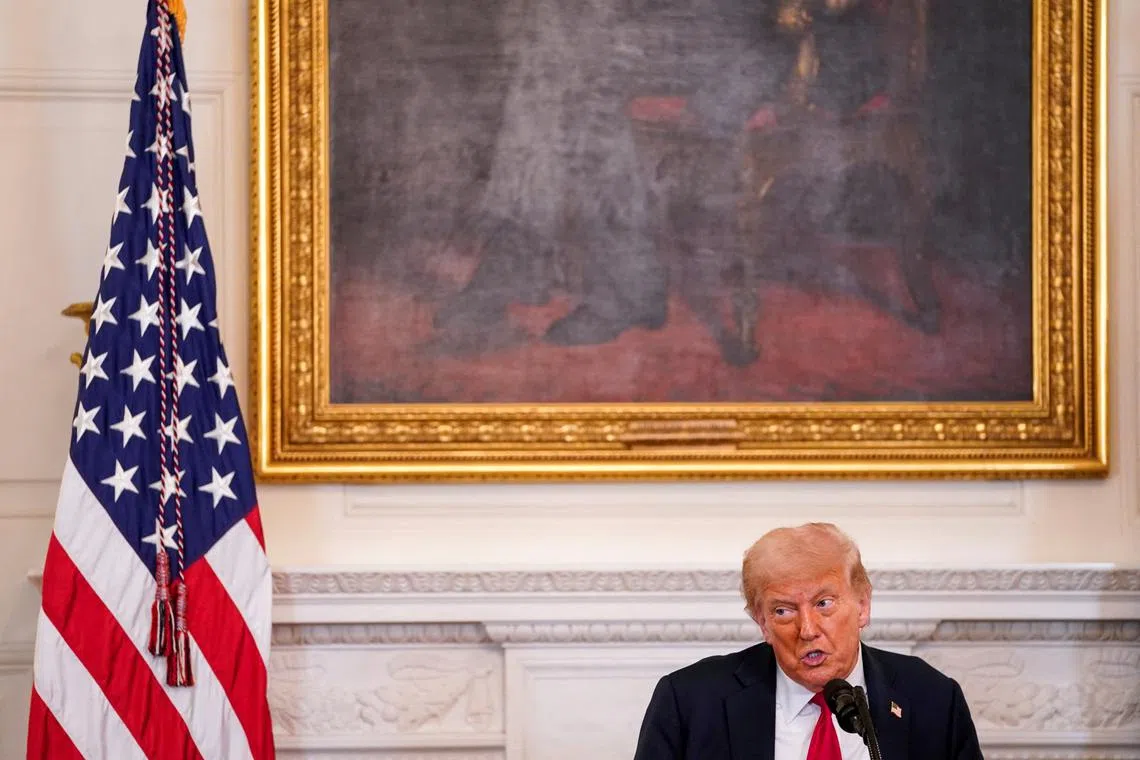Trump says he is ‘not done’ with Putin, BBC reports
Sign up now: Get insights on Asia's fast-moving developments

US President Donald Trump announced new weapons for Ukraine on July 14, and threatened sanctions on buyers of Russian exports unless Russia agrees to a peace deal.
PHOTO: REUTERS
WASHINGTON – US President Donald Trump said he was “not done” with Russian President Vladimir Putin, according to a BBC interview published on July 15, hours after Mr Trump said he was disappointed in Mr Putin and threatened Moscow with sanctions.
Asked then by the BBC was he done with Mr Putin, Mr Trump said: “I’m disappointed in him, but I’m not done with him. But I’m disappointed in him”.
“We’ll have a great conversation. I’ll say: ‘That’s good, I’ll think we’re close to getting it done,’ and then he’ll knock down a building in Kyiv,” the president added.
Mr Trump announced new weapons for Ukraine on July 14, and threatened sanctions on buyers of Russian exports, with a 50-day grace period, unless Russia agrees to a peace deal, a major policy shift brought on by frustration with Moscow’s ongoing attacks on its neighbour. ‘
He told reporters on July 14 that billions of dollars of US weapons, including the Patriot air defence missiles, will be sent to Ukraine via Nato and that Nato would pay for them.
Since returning to the White House and promising a quick end to the war, Mr Trump has sought rapprochement with Moscow, speaking several times with Mr Putin. His administration has pulled back from pro-Ukrainian policies such as backing Kyiv’s membership in Nato and demanding Russia withdraw from all Ukrainian territory.
But Mr Putin has yet to accept a proposal from Mr Trump for an unconditional ceasefire, which was quickly endorsed by Kyiv. Recent days have seen Russia use hundreds of drones to attack Ukrainian cities.
In the BBC interview, Mr Trump expressed renewed support for the Nato alliance.
“I think Nato is now becoming the opposite of that (obsolete) because the alliance was “paying their own bills”, he told the BBC. REUTERS


